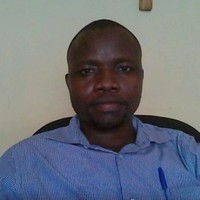

By Rogers Mandu | The importance of building professional networks cannot be over emphasized. As we make connections along the way we need to think of how to maintain these relationships which could come in handy in times of need.
Writing on the subject and quoting Francesca Gino who is a professor at Harvard Business School, Rebecca Knight notes that networks give people access to information ranging from advice to problem-solving assistance, adding that over time, “this information access helps people acquire the knowledge and competencies that are necessary to succeed at work and better handle challenges.”
This thinking was not any different from what was at the back of our minds when -as a team at Makerere University Centre of Excellence for Maternal Newborn and Child Health Research- we deliberated on ways of keeping together MNCH stakeholders especially health workers we have worked with over the last decade.
Context
Against this backdrop and the timely presence of technology in form of new media we decide to create an MNCH WhatsApp group in August 2018. This was after the initiation of a vibrant quality improvement collaborative under the Preterm Birth Initiative study which brought together health workers from five hospitals in South Eastern Uganda (Busoga). We needed to keep this collaboration alive even after the project. We also had a group from lower level health facilities especially level 4 health centres who had been brought together through our Maternal and Newborn Scale -Up project. These health workers form the bulk of the group’s membership who also include specialists from within the region and national level who have worked as their trainers and mentors over time.
In other words, we are talking of midwives, medical officers, senior nursing officers, commissioners, Obstetricians and gynecologists, pediatricians, neonatologists, researchers, from Makerere University School of Public Health, directors of hospitals, medical superintendents, district health officers and some officials from the ministry of Health, among others.
How we work
A lot of capacity has been built in the region in terms of skilling and peer to peer learning, as well as building and strengthening partnerships with other implementing partners involved in MNCH work.
The group is now synonymous with sharing of experiences, peer to peer support, consultations on medical conditions and course of action for the treatment and dosage, improved referral to a health facility that has a particular service, knowledge and protocols sharing on procedures, engaging champions and experts on technical issues, leadership engagement and continuing mentorship, among others.
This is a nearly 24-hour functional group where specialists respond to questions on case specific condition and advice on the next course of action and treatment as appropriate. This reminds me of some amazing cases that saw members hooked online for hours. One such case involved a 20 year old woman that bled to near death ad was in need of an emergence blood transfusion and blood was not available at Bugiri hospital, referred to Jinja, given one unit of blood that was mobilized through the WhatsApp messaging within the group and later referred to Mulago National hospital in better health condition.
Another case was a baby that was referred from Bugiri Hospital to Mulago National referral with continuous messaging even in transit with the escorting midwife on the next course of action.
There was a case of a baby with a congenital abnormality was raised on the platform and members willingly contributed technical and financial support to a midwife to enable the baby to be transferred for specialized care at a technical hospital in Kampala.
Conclusions and observations
The real time consultations facilitated by this group have contributed to a reduction in the volume of referrals from the linked facilities to the regional and the national levels.
